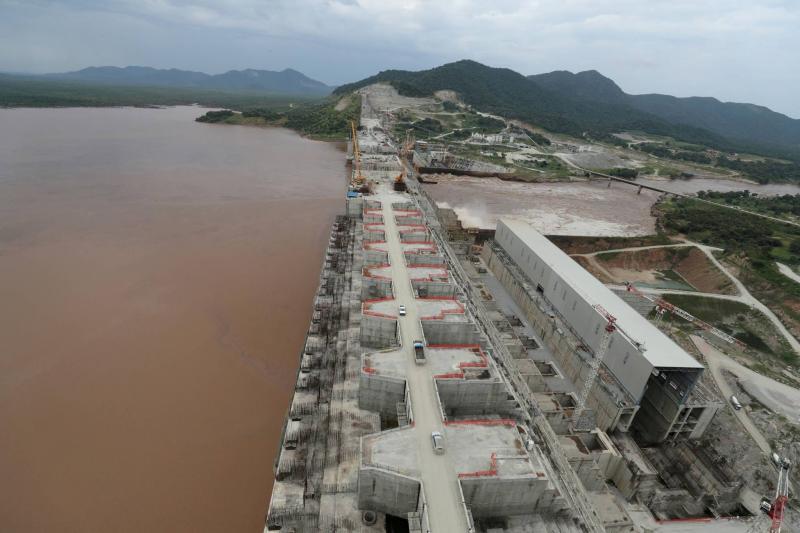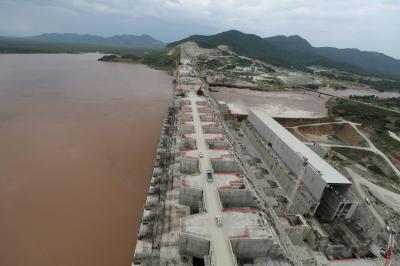Under the title "Why Has Ethiopia Not Announced the Amount of Water Stored in the Second Filling?", the Al Arabiya website reported on a message in Arabic written by Ethiopian Prime Minister Abiy Ahmed directed at the downstream countries, Egypt and Sudan, a few days ago. In this message, he announced the completion of the second filling of the Grand Ethiopian Renaissance Dam in a manner that did not harm the two countries, asserting that the dam is beneficial for all and a win for growth and cooperation among the three countries. However, the actual storage figures for the second filling, which showed 3 billion cubic meters instead of the 13.5 billion cubic meters that was planned, indicate that Ethiopia has not completed the second filling. Ethiopia has also not executed what it previously declared in an official statement made to the downstream countries in July, which included its intention to store 13.5 billion cubic meters of water in two phases over July and August.
So what happened, and why has Ethiopia still not announced the amount of water stored in the second filling? What is the explanation for this?
According to Dr. Khaled Abu Zeid, the regional director of water resources at the CIDARI organization, the information provided by Ethiopia to the downstream countries was misleading, without knowing its aim. Such information could cause harm to them; it should have been accurate and agreed upon with the two countries so that a country like Sudan could take the necessary measures to face the second filling with the predetermined amount and prepare its dams accordingly.
He added that Ethiopia's letter dated July 5 indicated that water would pass over the middle corridor toward Egypt and Sudan in the first half of August, while the Ethiopian side knew the maximum possible elevation of the middle corridor before flooding and the amount of water that could be stored, making it difficult to store 6.9 billion cubic meters, contrary to what was announced. The Egyptian expert mentioned that as a result of this, and due to Ethiopia's inability to execute what was declared in the letter about storing 6.9 billion cubic meters, water passed through the middle corridor early, specifically on July 19, heading toward Egypt and Sudan. He added that the amount Ethiopia had stored in the previous year was 4.9 billion cubic meters, along with a water loss due to evaporation that reached about 390 million cubic meters. He stated that as the years of storage increase, the percentage of loss from evaporation also rises, and over the long term, these lost amounts will certainly affect Egypt and Sudan. Therefore, there should be coordination and cooperation among the three countries to address and solve this problem before drought years to reduce the amounts of lost water.
For his part, Egyptian expert Abbas Sharaki stated that Ethiopia has not completed the second filling as its officials announced due to several reasons, the most prominent being the incomplete engineering constructions, the strength of this year's flooding, weak funding, and a lack of resources necessary for elevating the middle corridor. He added that Ethiopia has only stored 3 billion cubic meters, bringing the total amount stored in two years to 7.9 billion cubic meters. He mentioned that the Ethiopian claim that the filling was completed quickly due to heavy rainfall is incorrect, as the filling occurs from the moment water reaches the dam, even if the rains are light and not heavy. He emphasized that Ethiopian officials have not yet announced the amount of water stored so as not to shock their people, who have spent a lot of their money on the project's completion, and to avoid confronting them with the disappointing news that the second filling halted at 3 billion cubic meters instead of 13.5 billion and at a height of 573 in the dam's body due to incomplete constructions.




